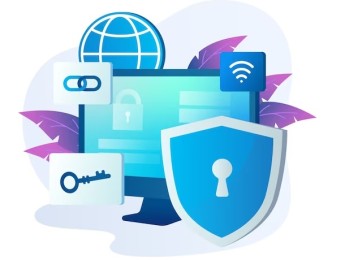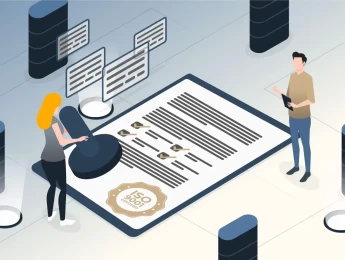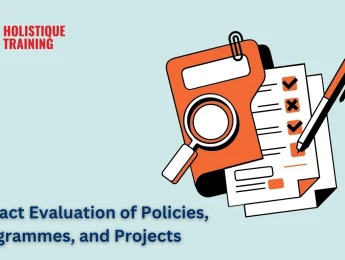In today's intricate business landscape, with constant market shifts and technological advancements, managers face challenges in recognising and evaluating opportunities. This course is meticulously crafted to equip managers with the tools and practices necessary for strategic analysis, evaluation, and opportunity seizing in a fiercely competitive market. Designed for managers aspiring to excel in programme management, this course addresses setting strategic objectives, planning programmes, and maximising benefits throughout the programme lifecycle.
Upon completion of this course, participants will be able to:
- Gain proficiency in information management best practices.
- Lead with robust strategic decisions using modern analytical tools and techniques.
- Navigate complexity, specification, and scheduling constraints efficiently.
- Develop strategies for risk assessment and management.
- Formulate effective programme strategies.
- Cultivate balanced public-private relationships in development activities.
- Establish targets and performance standards amidst change and foster team commitment to programme delivery.
This course caters to a diverse range of professionals, including:
- Experienced and aspiring managers seeking to enhance their strategic skills.
- Leaders aiming to improve team performance.
- Board members involved in strategic decision-making.
- Strategy planners and consultants.
- Portfolio, programme, and project practitioners, including members of PMOs, PgMOs, and PfMOs.
The five-day course on Strategic Programme Management Excellence employs an interactive and practical training methodology to ensure participants gain in-depth knowledge and applicable skills. The approach combines expert-led lectures, dynamic group discussions, and hands-on workshops to facilitate a comprehensive understanding of strategic programme management principles. Participants will use real-world case studies and simulation exercises to practice strategic analysis, decision-making, and risk management techniques. Role-playing activities and collaborative projects will enhance their ability to manage stakeholder relationships and navigate complex programme scenarios. Continuous feedback, reflection sessions, and peer-to-peer learning opportunities will reinforce knowledge acquisition and promote applying best practices in real-world settings, ensuring participants are well-prepared to lead and excel in their programme management roles.
Day 5 of each course is reserved for a Q&A session, which may occur off-site. For 10-day courses, this also applies to day 10
Section 1: Programme Management Fundamentals
- Understanding the distinctions between projects, programmes, and portfolios.
- Exploring the four phases of programme management and their essential principles.
- Defining programme essentials and the disciplines of programme management.
- Roles and responsibilities of the programme manager.
- Change theory and decision gates for enhancing success rates.
- Managing stakeholder relationships and strategic analysis.
Section 2: Decision Tools and Programme Development
- Utilising decision tools through case study analysis.
- Generating a programme impact goal and developing a programme concept document.
- Defining programme scope and distinguishing projects within the programme.
- Establishing a programme charter and forming a programme logical framework.
- Implementing monitoring and evaluation frameworks at the programme level.
- Risk assessment, management, and stakeholder expectation management.
- Developing programme proposals, resource charts, and resource mobilisation plans.
Section 3: Programme Implementation and Management
- Creating the programme implementation plan and designing programme flexibility.
- Stakeholder engagement, programme stages, and supply chain management.
- Resource, budget, and logistics management within the programme.
- Effective stakeholder management and communication strategies.
- Monitoring, evaluation, accountability, and learning mechanisms.
Section 4: Programme Closure and Evaluation
- Generating the programme's final report and considering decision gate factors.
- Planning closure processes, sustainability assessment, and administrative closure.
- Conducting programme evaluations, learning from experiences, and prioritising development opportunities.
- Allocating analytics for quantitative and qualitative assessments.
- Conducting feasibility studies and evaluating projects financially, technically, and commercially.
- Formulating and leading the application of optimised analytics systems.
- Using analytics as the foundation for strategic planning and developing personal action plans for leading analytics activities.
Upon successful completion of this training course, delegates will be awarded a Holistique Training Certificate of Completion. For those who attend and complete the online training course, a Holistique Training e-Certificate will be provided.
Holistique Training Certificates are accredited by the British Assessment Council (BAC) and The CPD Certification Service (CPD), and are certified under ISO 9001, ISO 21001, and ISO 29993 standards.
CPD credits for this course are granted by our Certificates and will be reflected on the Holistique Training Certificate of Completion. In accordance with the standards of The CPD Certification Service, one CPD credit is awarded per hour of course attendance. A maximum of 50 CPD credits can be claimed for any single course we currently offer.
- Course Code MG2-153
- Course Format Classroom, Online,
- Duration 5 days














